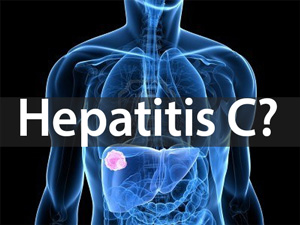 Hepatitis C is an infectious disease affecting primarily the liver, caused by the hepatitis C virus (HCV). Chronic infection can lead to scarring of the liver and ultimately to cirrhosis, liver failure, liver cancer or life-threatening esophageal, gastric varices, upper gastrointestinal hemorrhages and other problems.
Hepatitis C is an infectious disease affecting primarily the liver, caused by the hepatitis C virus (HCV). Chronic infection can lead to scarring of the liver and ultimately to cirrhosis, liver failure, liver cancer or life-threatening esophageal, gastric varices, upper gastrointestinal hemorrhages and other problems.
HCV is spread primarily by blood-to-blood contact associated with intravenous drug use, poorly sterilized medical equipment and transfusions. About 150–200 million people worldwide are infected with hepatitis C.
The virus persists in the liver in about 85% of those infected. Most people don’t have symptoms, and it’s common to have hepatitis C for 15 years or longer before it is diagnosed. Many people find out that they have HCV when they are tested for other reasons.
Ask your doctor about HCV if you:
- Have signs or symptoms of liver disease, such as abnormal liver tests.
- Received blood from a donor who was found to have hepatitis C.
- Have ever shared needles while using drugs, even if you only experimented many years ago.
- Have many sex partners or have a sex partner who has a chronic hepatitis C infection.
- Have had your blood filtered by a machine (hemodialysis) because your kidneys cannot filter your blood.
- Received blood, blood products, or a solid organ from a donor before 1992. Since 1992, all donated blood and organs are screened for hepatitis C. So it is now rare to get the virus this way.
- Received blood-clotting factor concentrates (used to treat blood disorders such as hemophilia) before 1987. In 1987, screening of clotting factor concentrates for hepatitis C became a requirement.
The first blood test we perform looks for hepatitis C antibodies. If we see HCV antibodies, then you have had hepatitis C at some point. A second test can tell if you have hepatitis C now. When blood tests show that you have hepatitis C, you will have to have a serious discussion with your doctor about the next step – a liver biopsy and the course of treatment.
If you have any reason to believe that you may have Hepatitis C you can have the first test done without a doctor’s order. If it’s positive, you’ll have to see a doctor to discuss this matter further.

